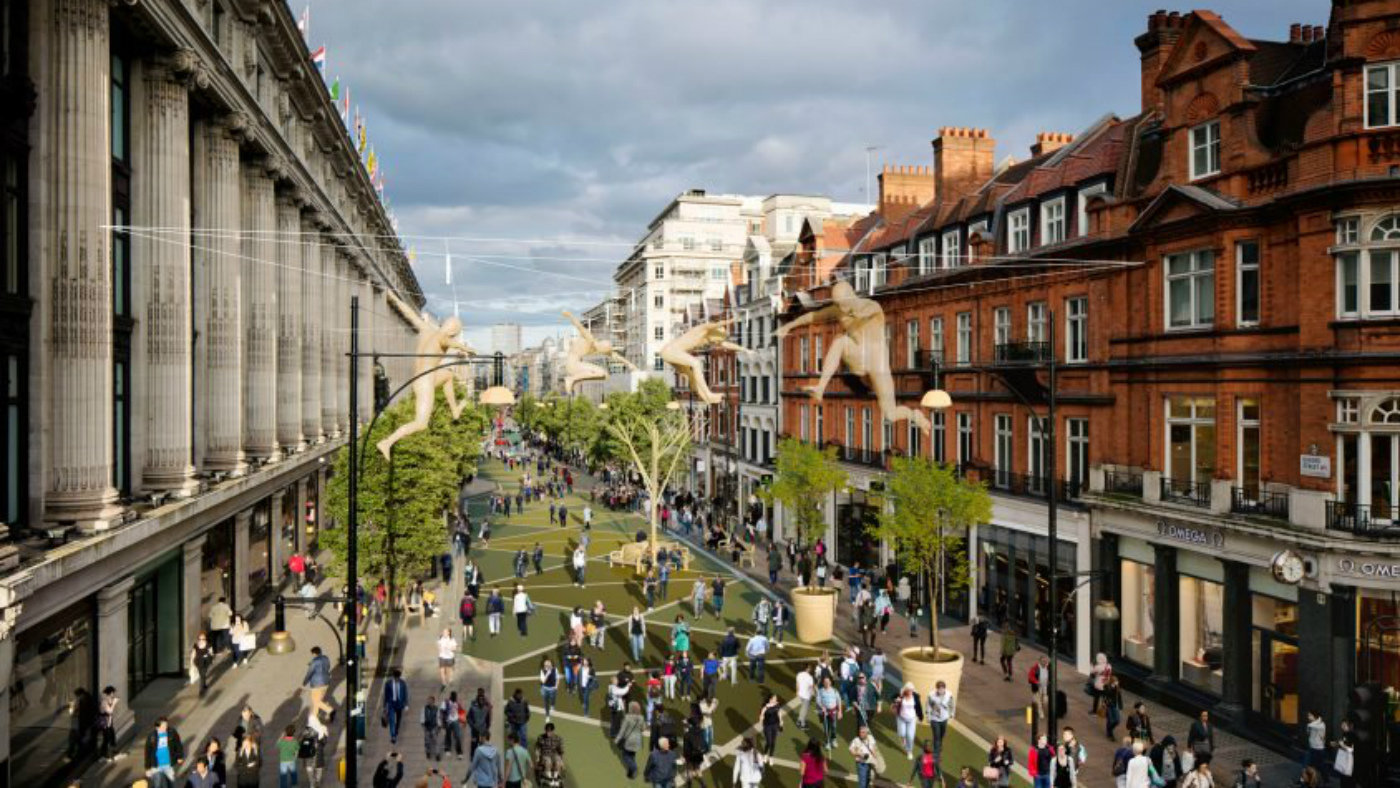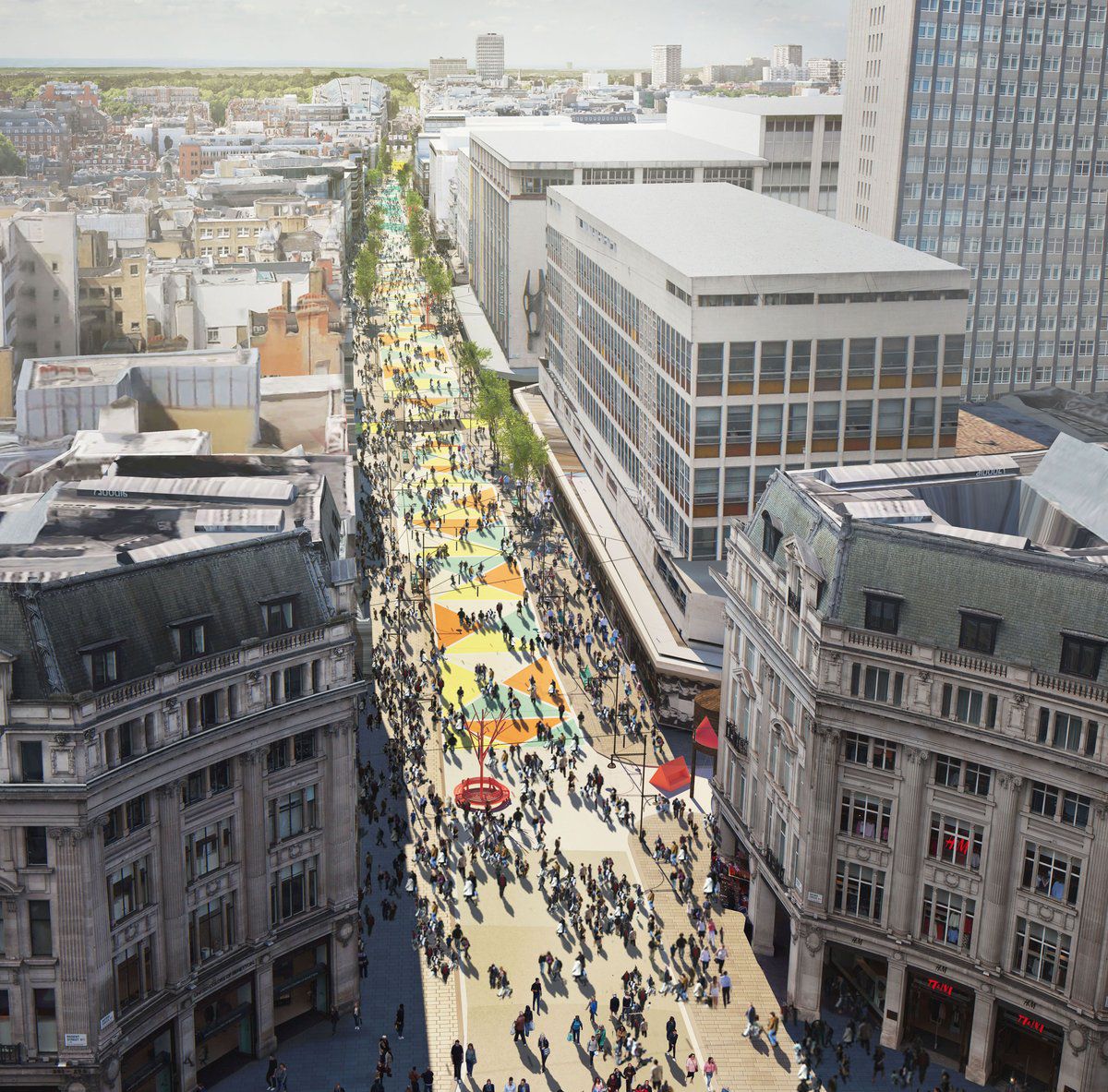Radical plans unveiled to pedestrianise Oxford Street - in pictures
Move intended to address air quality concerns and lessen problems of overcrowding in London

A free daily email with the biggest news stories of the day – and the best features from TheWeek.com
You are now subscribed
Your newsletter sign-up was successful
Radical plans to pedestrianise London’s Oxford Street have been unveiled.
The plans are “intended to address air quality concerns, the high frequency of collisions - around 60 a year, and severe overcrowding during the busiest parts of the day”, says City AM. The introduction of the Elizabeth Line is expected to significantly increase visitor numbers in the area, according to Transport for London.
The first stage of the scheme is intended to happen as soon as December next year. That’ll close most of the western half of the road, between Oxford Circus and Orchard Street, to vehicles, creating what the mayor Sadiq Khan described as a “traffic-free pedestrian boulevard”. “The road surface will be raised, to match the pavements; there’s talk of an 800m long work of public art to make the street pretty, too,” says City Metric.
The Week
Escape your echo chamber. Get the facts behind the news, plus analysis from multiple perspectives.

Sign up for The Week's Free Newsletters
From our morning news briefing to a weekly Good News Newsletter, get the best of The Week delivered directly to your inbox.
From our morning news briefing to a weekly Good News Newsletter, get the best of The Week delivered directly to your inbox.
Transport for London has already reduced the number of buses running along Oxford Street by 40% and will cut the number further after Crossrail opens.

Khan described the publication of the plans as “a hugely exciting moment for the capital”.
He said: “Oxford Street is world famous with millions of visitors every year, and in just over a year the iconic part of the street west of Oxford Circus could be transformed into a traffic-free pedestrian boulevard.
“Whether you’re a local resident, a business, or shop in some of the area’s famous stores, our plans will make the area substantially cleaner and safer for everyone, creating one of the finest public spaces in the world.”
A free daily email with the biggest news stories of the day – and the best features from TheWeek.com
Around 3.5 million people visit Oxford Street each week, and the Bond Street, Oxford Street and Regent Street area alone contributes around £7.6bn each year to the UK economy, so “the hope is that this will be boosted further by making the shopping hub somewhere people want to spend more time,” says the Evening Standard.
The measures were welcomed by environmental and business groups.
British Heart Foundation chief executive Simon Gillespie said they are an “important step towards tackling air pollution”.
Jace Tyrrell, chief executive of the New West End Company, which promotes the area’s businesses, said: “Removing the wall of red buses from Oxford Street will reduce congestion and improve air quality.”

Not everyone is pleased with the changes though.
The Licensed Taxi Drivers' Association expressed its disappointment at the plans.
Richard Massett, chairman of the LTDA, said: “The loss of taxi access to this section of Oxford Street will cause considerable inconvenience to disabled passengers, many of whom rely upon London’s fully-accessible taxi fleet to get around safely and conveniently. The door-to-door service that taxis offer are also relied upon by the millions of tourists who visit Oxford Street every year. Their needs have clearly not been considered.”
However, TfL commissioner Mike Brown told City AM that taxis will have “decent access” in the Oxford Street area, with increased taxi ranks nearby. He also pointed out that “all of the Elizabeth Line stations will be fully accessible and step free”, improving how people can get in and out of Oxford Street.